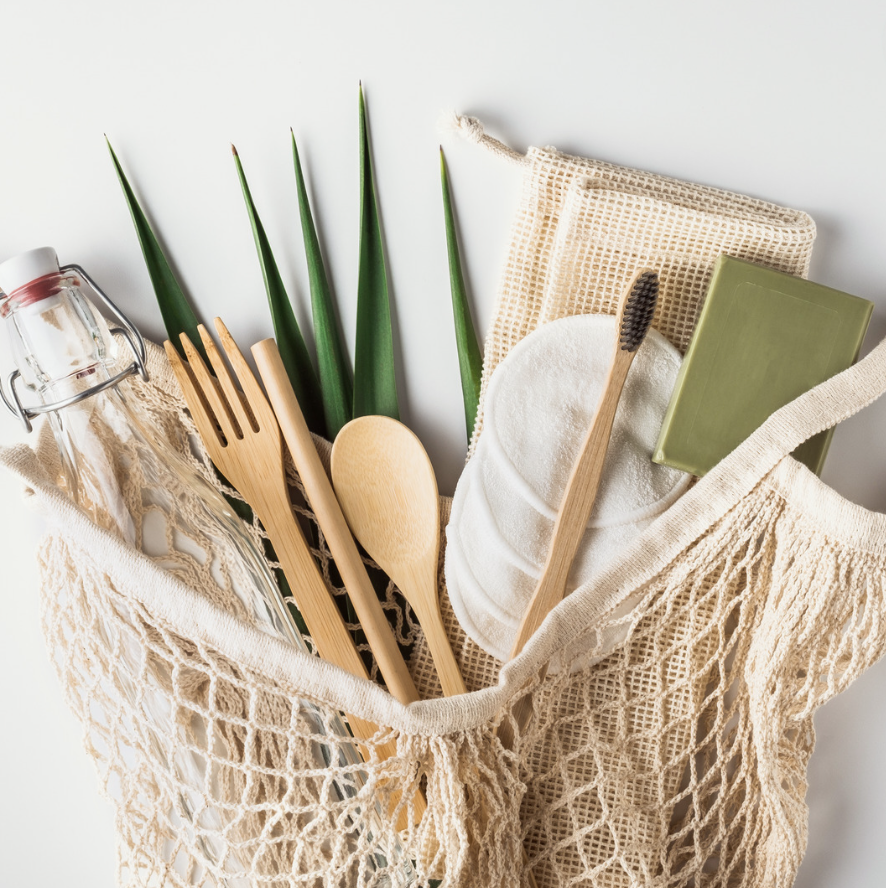
Eco-Friendly Lifestyle Hacks for a Sustainable Home
Share
Living an eco-friendly lifestyle not only benefits the planet but also contributes to creating a healthier and more sustainable home environment. We are excited to share some practical and creative eco-friendly lifestyle hacks that you can incorporate into your daily routines. From reducing waste to conserving energy, these simple yet effective tips will help you create a more sustainable home and make a positive impact on the world around you.
-
Embrace the Power of Recycling: Discover the importance of recycling and learn how to set up an effective recycling system in your home. Find out what items can be recycled and how to properly prepare them for recycling. By giving new life to materials through recycling, you can reduce waste and minimize the strain on our planet's resources.
-
Reduce Single-Use Plastics: Explore easy ways to reduce single-use plastics in your home. Swap out disposable water bottles for reusable ones, switch to cloth shopping bags, and opt for reusable food storage containers. These small changes can significantly reduce plastic waste and contribute to a more sustainable lifestyle.
-
Conserve Water: Learn practical water-saving techniques that can make a big difference in reducing your water consumption. Install low-flow faucets and shower heads, fix leaks promptly, and consider collecting rainwater for watering plants. By conserving water, you not only help the environment but also save on your water bills.
-
Energy-Efficient Lighting: Discover the benefits of energy-efficient lighting options such as LED bulbs. Learn how to choose the right bulbs for your home and how to make the most of natural light. By using energy-efficient lighting, you can lower your electricity consumption and reduce your carbon footprint.
-
Mindful Consumption and Minimalism: Embrace mindful consumption by adopting a minimalist mindset. Declutter your home, donate or repurpose items you no longer need, and focus on purchasing quality, long-lasting products. By avoiding unnecessary purchases and minimizing waste, you can create a more sustainable living space.
-
Green Cleaning Solutions: Explore eco-friendly alternatives to conventional cleaning products. Learn about natural ingredients like vinegar, baking soda, and lemon juice that can effectively clean your home without harsh chemicals. By using green cleaning solutions, you can promote a healthier indoor environment and reduce the release of harmful substances into the ecosystem.
-
Sustainable Gardening: Discover the joy of sustainable gardening by composting kitchen scraps, planting native species, and using organic fertilizers. Sustainable gardening practices not only benefit your garden but also contribute to biodiversity and reduce the need for harmful pesticides and herbicides.
By incorporating these eco-friendly lifestyle hacks into your daily routines, you can create a more sustainable home and make a positive impact on the environment. Every small change adds up, and together, we can build a greener future. So, embrace the power of recycling, reduce single-use plastics, conserve water and energy, practice mindful consumption, opt for green cleaning solutions, and embrace sustainable gardening. Let's make our homes a reflection of our commitment to a more sustainable world.
Start implementing these eco-friendly lifestyle hacks today and be a part of the global movement toward a greener, cleaner, and more sustainable future. Together, we can create a home that nurtures both our well-being and the health of our planet.

7 comments
When it comes to reducing the use of energy, one additional tip to consider is the importance of replacing old HVAC systems with energy-efficient models. Older systems tend to be less efficient and consume more energy, resulting in higher utility bills and an increased environmental impact. If you’re unsure whether it’s time for a heating system replacement, you can find some signs indicating the need for one here: https://first-choicehvac.com/.
Thanks for sharing all these eco-friendly ideas! By the way, did you know that ceiling fans aren’t just for keeping you cool during summer?
According to this article https://www.gilmanheatingandcooling.com/resources/blog/how-to-save-money-on-your-heating-and-cooling-bills, If you reverse the direction of your ceiling fan clockwise, it will redistribute warm air in your home, which can help your heating system operate more efficiently and consume less energy energy.
Thanks for sharing this article. One more thing every homeowner should do is ensure their heating system is energy-efficient, which becomes even more critical during the winter season. Here are some tips for homeowners to keep in mind for achieving energy-efficient heating: https://polestarplumbing.com/news-media/maximizing-comfort-and-efficiency-the-ins-and-outs-of-furnace-tune-ups-in-kansas-city.
Thanks for sharing this. If you have a traditional water heater with a tank, you should also remember to inspect your water heater for leaks. Not only do these leaks waste water, but they can also lead to increased energy consumption. Here are the most common causes of water heater leakage listed: https://www.sandersandjohnson.com/water-heaters/water-heater-repair/. By fixing these leaks, you can save both energy and money.
Thanks for mentioning the importance of checking for plumbing leaks. However some leaks are difficult to detect, and even small, unnoticed leaks can waste significant amounts of water over time. Here’s how to find a plumbing leak: https://servicetoday247.com/blog/how-to-find-a-plumbing-leak/.